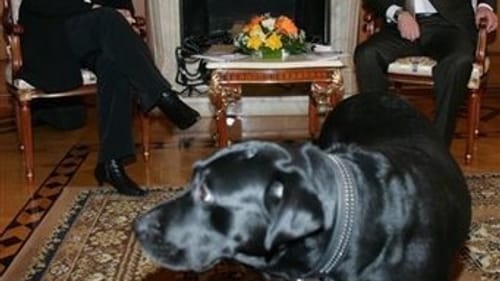Stay in the Loop
BSR publishes on a weekly schedule, with an email newsletter every Wednesday and Thursday morning. There’s no paywall, and subscribing is always free.
His heart has a mind of its own
Trump: Malevolent or incompetent?
Are you executive material? Test your managerial aptitude with this hypothetical multiple-choice question:
You are the president of the United States. Although you lack political experience, you enjoy access to some of the world’s most knowledgeable political, diplomatic, and military experts. A dozen of your intelligence agencies unanimously conclude that a foreign nation has engaged in systematic cyberattacks designed to disrupt American elections. As it happens, you are scheduled to meet this week with the leader of that very same nation. Under the circumstances, you decide to:
a. Cancel the meeting.
b. Consult with your advisors to devise an effective response strategy.
c. Reassure the public that your team is taking steps to protect the integrity of America’s democratic process.
d. Tell the public there’s nothing you can do.
If you are Donald Trump, the correct answer is (d). Four days before his scheduled summit meeting with Russian president Vladimir Putin, Trump announced he would ask Putin about Moscow’s alleged meddling in the 2016 U.S. presidential election. But then he added: “What am I going to do? He may deny it. All I can do is say, ‘Did you?’ and ‘Don’t do it again.’ But he may deny it.”
After spending two hours alone with Putin on Monday, Trump announced that he found Putin’s denials of election interference more credible than the reports of Trump’s own intelligence agencies. "I have great confidence in my intelligence people,” he explained, “but I will tell you that President Putin was extremely strong and powerful in his denial today." Besides, Trump added, “We’ve all been foolish.”
MOVE memories
To the rapidly expanding list of all the things Donald Trump isn’t — billionaire, successful entrepreneur, team builder, philanthropist, author, deal maker, politician, diplomat — let us add one more label: executive.
Trump’s ludicrous confession of helplessness this past week is without equal in U.S. presidential history. (As Abraham Lincoln didn’t say in 1861, “There are many fine people in the South. And both sides have made mistakes. So if they want to secede, what can I do?”)
But it’s hardly unique. After the 1985 MOVE disaster, in which Philadelphia’s police responded to what was essentially a zoning violation by incinerating an entire city block, at a loss of 11 lives and 61 houses, Mayor Wilson Goode told the investigating commissioner, “Did I make mistakes in the process? The answer is yes… I don’t know what else I can say except, Mr. Ruth, I’m sorry.”

Killing with kindness
But of course, a savvy mayor can indeed exercise leadership in a crisis even without formal power.
“A leader is one who convinces us,” goes an old Apache saying. Years ago, over lunch with the Free Library’s then-president, Elliot Shelkrot, I tried to console him about Philadelphia’s onerous civil-service rules, which prevented Shelkrot from hiring or firing anyone, even his own secretary. Shelkrot merely shrugged cheerfully.
“The power to hire and fire is overrated,” he said. “There are other ways to motivate people.” Some executives know how to exercise power, and some don’t.
Wilson Goode, for all his failure of leadership during the MOVE crisis, was a career public servant confronted with a genuinely unique challenge. Trump has no such excuse. This is, after all, the man who, discussing crime at the Republican National Convention, declared, “I alone can fix it.”
Two peas in a pod
To be sure, Russian meddling in U.S. elections is a problem Trump doesn’t really want to fix. His infatuation with Putin predates Russia’s 2016 interference, extending back at least to Trump’s 2013 Miss World pageant in Moscow, when Trump lobbied unsuccessfully for an audience with his idol. Like Connie Francis, Trump’s theme song appears to be “My Heart Has a Mind of Its Own.”
His capitulation to Putin strikes me less as an act of treason than a clumsy attempt at diplomacy by a man who knows nothing about diplomacy. It’s a case of incompetence rather than malevolence.
The real irony here is that Putin is hardly the mastermind that Trump (like many impressionable pundits) assumes. Putin's allegedly formidable domain amounts to what Senator John McCain has characterized as a gas station with an army. As a French business newspaper recently observed, Microsoft alone has registered more patents than all of Russia. After Putin intimidated German prime minister Angela Merkel in 2007 by bringing his large pet dog to their meeting, Merkel perceptively remarked: “I understand why he has to do this — to prove he’s a man. He's afraid of his own weakness. Russia has nothing, no successful politics or economy. All they have is this.”
As I suggested in BSR two years ago, Trump and Putin are really two peas in a pod: weaklings dazzled by the spectacle of power (as opposed to its exercise) and preoccupied with reinforcing each other’s macho self-image.
Ultimately, the test of good executives lies in their ability to grapple with problems creatively rather than make excuses. When confronted with a sticky challenge, the effective executive says, “This is why they pay me the big bucks.” Others wring their hands and say, “What can I do?” It’s one more test Trump has flunked.
Sign up for our newsletter
All of the week's new articles, all in one place. Sign up for the free weekly BSR newsletters, and don't miss a conversation.

 Dan Rottenberg
Dan Rottenberg